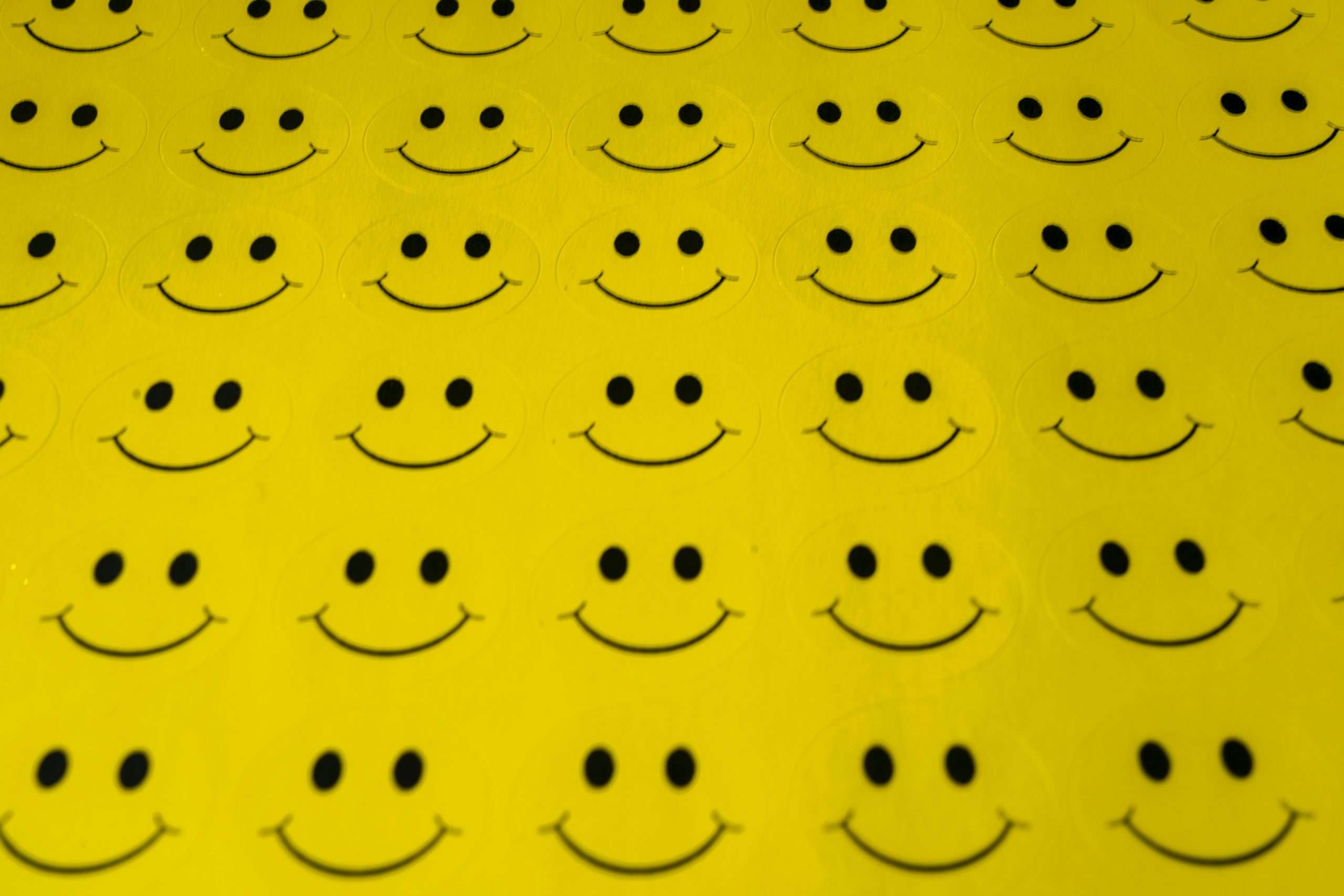Prelude
6 am, alarm rings. Amy promptly raises her head from the silk pillowcase and with a choreographed move, one that would make even a Russian ballerina jealous, she stops the jingle on the phone.
She checks her sleep app. “Your REM sleep has decreased by 10% compared to last week.”
She’ll deal with that later. No time to waste.
First, 15 minutes of chakra-aligning meditation. Lotus position.
“Focus on your breath. Breathe. Why is this so hard?! I wonder if Dylan sent that presentation to my manager. He’s always first. Oh shit, the breath. In. Out.”
Next, 5-minute journaling. “Today would be great if that potential client says yes to our proposal.” That’s a lie.
Breakfast. 100g quinoa granola and 250ml freshly-made vanilla almond milk from non-GMO nuts. 312 calories. “Note to self to keep it under 300 next time.”
Green juice, on the go. As she chugs the mossy brew, Amy thinks positive thoughts, telling herself it tastes just like a tropical vacation. It doesn’t.
Ping. “You didn’t record your mood this morning.” Tap. Amy is presented with five emojis, ranging from pale brown on the left – representing a poor mood – to a vibrant green on the right – symbolizing a positive mental state. She selects the fourth innocuous emoji, the one that’s a pale green, as opposed to the vibrant fifth one, which also flaunts a wider smile.
Work. Amy is working on spreadsheets, but dreaming of bedsheets.
Ping. New email. “Elevate your well-being with our company’s new wellness package.”
Pilates. Reformer Pilates, the treadmill equivalent of jogging. Amy’s not playing around. Push, squeeze, lengthen.
Dinner. A carefully portioned, plant-based bowl, complete with five different vegetables. “Eating the rainbow,” they call it. “Then why does it taste like the color beige?”
Ping. “You didn’t reach your step count for today. Let’s try to hit it tomorrow!” Amy contemplates walking in circles around her living room. Decides against it.
7-step night skincare routine. Face mask. Mask off.
Ping. “Your stress levels have increased 15% since last month. Tap to find out more.” She’d rather not.
Time for the bed-time stress relief app. “Who knew peace of mind came with a monthly subscription?”
She selects “soothing ocean sounds” from the app, but tumultuous thoughts and worries are crushing like violent waves on the shore of her mind. And there’s no app for that.
Lights out.
What I want to tell you today is not to move into that world where you’re alone with yourself and your mantra and your fitness program or whatever it is that you might use to try to control the world by closing it out. I want to tell you: just live in the mess. Throw yourself out into the convulsions of the world. – Joan Didion
I’m not Amy; and although I made her up, I’m sure she exists – if only as a Platonic Ideal.
The wellness industry, with its army of lifestyle influencers, is selling us a high standard for how we should take care of ourselves. All because we deserve it, of course.
There’s no shortage of tools and practices to keep us sane, fit, calm and “performing” well. And as someone who has tried most of them, I had an unsettling realization: they can be the manifestation of a larger sentiment – that of no longer believing we can change our external conditions.
The prospect of changing and controlling the outside world can appear to most as Quixotic, so we’ve resigned ourselves to working on what we can control – our own minds and bodies – to the point of obsession.
But when we retreat inward, we exchange one set of problems for another. Habit tracking, sleep monitoring, mood logging can often feed our anxieties more than relieving them.
The relentless pursuit of wellness can itself become a source of stress and anxiety, because when you zero in on yourself with so much rigor, you lose track of the bigger picture. Focusing on ourselves with the precision a Swiss master watchmaker labors over his timepieces can lead to a false sense of agency, but underneath that fragile façade lies our resignation to engage fully with the messy world outside.
These practices can offer a false sense of security. When the world is overwhelming, – as if a furious ocean is swallowing us whole – a meditation practice can seem like the life raft we’ve been looking for.
I remember one night my thoughts were playing ping-pong with each other, as they usually do before falling asleep, and suddenly all the balls dropped, as I realized I “lost” my 40+ day streak of meditation. I had simply forgotten to meditate that day. I didn’t mean to skip it, it just slipped my mind.
Know that sinking feeling when you discover you’ve lost your habit streak? There should be a word for that. I’m proposing “streakshame.” The fact that there even is such a feeling speaks to our attitude towards all the things we do to take care of ourselves. Instead of being a safe haven from stress, our approach can transform them into prisons.
Additionally, all these practices and tools, as useful as they are, can also box us in and narrow our perspective. When you put your life under the microscope – every decision closely scrutinized, every routine optimized to perfection – it’s the perfect condition for the misty fog of anxiety to set in, slowly at first, then all at once. Because if you’re both the master and the executioner, who will you blame when these practices won’t be able to support the weight of your life?1What I mean by this is the dual nature of these practices. We’re both the ones who prescribe the “treatment” and the ones who undertake it. Meditating, exercising, journaling – these are all self-imposed.
Unfortunately, the primary suspect would be ourselves.
The answer isn’t to abandon the rituals that keep us grounded, but to balance them with activities that widen our frame and shift the focus from “me” to “we.” These would be things that involve community, dialogue and shared experiences. Instead of a Yoga class, why not try Acro Yoga (which is a group activity)? Or perhaps instead of a solo journaling session, you could meet with some friends to discuss your latest thoughts on life.
The pursuit of wellness has a subtle irony baked inside: striving too hard for it can morph it from a “nice-to-have” to an imperative, another goal we must achieve. And what happens when we falter? What happens when we skip journaling to play video games or trade Whole Foods for Chipotle? Ironically, that will heighten the very stress wellness practices were supposed to quell.
Life is easier when you’re not constantly the center of your attention. Take yourself out from under the microscope. Throw yourself in the convulsions of the world.
Footnotes
- 1What I mean by this is the dual nature of these practices. We’re both the ones who prescribe the “treatment” and the ones who undertake it. Meditating, exercising, journaling – these are all self-imposed.




Hey Diana! This piece turned out awesome. I loved your examples of Acro Yoga and group journaling, things I need to try!
It’s relatable to overootimize and isolate yourself. I know because I’ve done it and still work on it being a former athlete. Thank you for writing this!
Yep, we’re all guilty of this to some extent, I think. Thank you for reading!
What an excellent essay, Diana!
“Focusing on ourselves with the precision a Swiss master watchmaker labors over his timepieces can lead to a false sense of agency, but underneath that fragile façade lies our resignation to engage fully with the messy world outside.” – such a profound observation & takeaway, I read this 3 times to let it sink in.
“The answer isn’t to abandon the rituals that keep us grounded, but to balance them with activities that widen our frame and shift the focus from “me” to “we.” – spot on!!
Amy reminded me of Ethan, a hypothetical but otherwise very real character I used here: https://www.lavinia-iosub.com/reflections/why-you-shouldnt-optimize-for-peak-performance
Well, well done, I will be sharing it!
Thank you, Lavinia! I’ll make sure to read your piece.